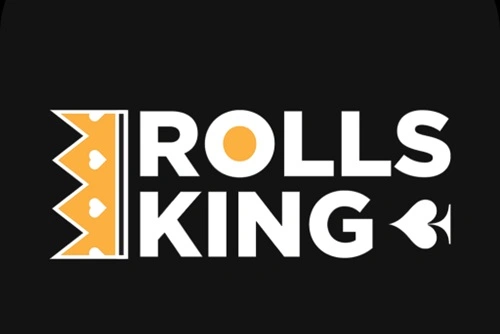Rolls King, a leading name in the quick-service restaurant (QSR) industry, has carved a niche in the Indian food market with its delicious range of wraps and rolls. Known for its fresh ingredients, wide variety of flavors, and quick service, Rolls King has become a go-to option for food lovers across India. For entrepreneurs looking to invest in the fast-food industry, owning a Rolls King franchise offers a lucrative opportunity with the backing of an established brand.
This article provides a detailed analysis of the Rolls King franchise cost, requirements, and profitability, helping you make an informed decision.
Why Invest in a Rolls King Franchise?

India’s fast-food market has been growing rapidly due to urbanization, changing lifestyles, and an increasing demand for convenient dining options. Rolls King is well-positioned to capitalize on this trend with its affordable and flavorful offerings. Here are the key reasons to invest in a Rolls King franchise:
- Strong Brand Recognition: Rolls King is a well-established brand known for its high-quality, tasty wraps and rolls.
- Wide Menu Variety: From vegetarian and non-vegetarian rolls to innovative flavors and side dishes, Rolls King caters to diverse customer preferences.
- Affordable Investment: Compared to other QSR franchises, Rolls King offers a relatively low-cost entry into the fast-food industry.
- Growing Market Demand: The popularity of quick-service restaurants in India is on the rise, making it an ideal time to invest in the sector.
- Comprehensive Support: Rolls King provides franchisees with training, marketing assistance, and operational support, ensuring a seamless setup and successful operations.
Rolls King Franchise Cost in India
Starting a Rolls King franchise requires a reasonable investment, making it an attractive option for first-time entrepreneurs and seasoned investors alike. Below is a detailed breakdown of the costs involved:
1. Initial Franchise Fee
The initial franchise fee for a Rolls King outlet typically ranges between ₹5 lakh and ₹10 lakh, depending on the location and store format. This fee grants franchisees the right to operate under the Rolls King brand and access its operational systems, recipes, and marketing materials.
2. Store Setup Costs
Setting up a Rolls King outlet involves creating a clean, inviting space for customers while ensuring efficient kitchen operations. The setup costs include:
- Retail Space: Rolls King outlets require a minimum area of 300 to 500 square feet, making them ideal for high-traffic locations such as malls, food courts, and high streets. Rental costs vary based on the city:
- Tier 1 Cities: ₹50,000 to ₹1.5 lakh per month
- Tier 2 and Tier 3 Cities: ₹25,000 to ₹75,000 per month
- Interior Design and Furnishings: ₹5 lakh to ₹8 lakh for furniture, fixtures, and branding that align with Rolls King’s standards.
- Kitchen Equipment: ₹3 lakh to ₹5 lakh for appliances like grills, refrigerators, and other cooking tools.
3. Licensing and Permits
Franchisees must obtain necessary licenses and permits, including:
- FSSAI License: ₹15,000 to ₹25,000
- GST Registration: ₹10,000 to ₹15,000
- Local Municipal Permits: ₹5,000 to ₹10,000
4. Inventory and Raw Materials
An initial investment in raw materials such as ingredients, packaging, and supplies is required. This cost typically ranges between ₹1 lakh and ₹2 lakh.
5. Marketing Contribution
Franchisees contribute to Rolls King’s local and national marketing campaigns. The marketing contribution is typically 2% to 4% of monthly sales.
6. Working Capital
A reserve of ₹2 lakh to ₹5 lakh is recommended for managing day-to-day expenses such as salaries, utilities, and inventory replenishment.
Total Investment
Considering all the components, the total investment required to establish a Rolls King franchise in India typically ranges between ₹15 lakh and ₹25 lakh, depending on the location and store format.
Requirements for Opening a Rolls King Franchise
To qualify for a Rolls King franchise, potential investors must meet specific eligibility criteria:
- Financial Stability:
- Franchisees must demonstrate the ability to invest in the business and sustain operations during the initial phase.
- Prime Location:
- Rolls King outlets should be located in high-footfall areas such as malls, food courts, commercial hubs, or near schools and colleges.
- Retail Space:
- A minimum area of 300 to 500 square feet is required for the outlet.
- Business Passion:
- While prior experience in the food industry is not mandatory, a passion for customer service and food quality is essential.
- Commitment to Brand Standards:
- Franchisees must adhere to Rolls King’s operational guidelines, including hygiene standards, customer service protocols, and store design.
Profitability and Return on Investment (ROI)
The profitability of a Rolls King franchise depends on factors such as location, footfall, and operational efficiency. Here’s an overview:
- Revenue Potential:
- A well-located Rolls King outlet can generate monthly revenue of ₹3 lakh to ₹7 lakh, depending on the customer base and menu offerings.
- Profit Margins:
- The average profit margin for a Rolls King outlet ranges between 25% and 35%, depending on cost control and sales volume.
- Break-Even Period:
- Most Rolls King franchises achieve break-even within 12 to 18 months, provided they are managed efficiently.
- Recurring Revenue:
- With a focus on fast-moving and affordable menu items, Rolls King ensures steady revenue streams through repeat customers.
Advantages of Owning a Rolls King Franchise
- Low Investment: Rolls King offers a cost-effective franchise model, making it accessible for first-time investors.
- High Demand: The brand’s wide menu appeals to a diverse customer base, ensuring consistent footfall.
- Brand Support: Franchisees benefit from training, marketing, and operational assistance.
- Proven Success: Rolls King’s established reputation and loyal customer base reduce the risk of failure.
- Scalable Model: Franchisees can expand by opening additional outlets in new locations.
Challenges to Consider
- Location Dependency: The success of the outlet heavily relies on its location and customer footfall.
- Market Competition: Rolls King competes with other QSR chains and local eateries offering similar products.
- Operational Challenges: Managing a fast-paced outlet requires skilled staff and efficient inventory management.
Conclusion
Investing in a Rolls King franchise is a promising opportunity for entrepreneurs looking to enter the fast-growing QSR industry in India. With its affordable investment model, strong brand reputation, and growing market demand, Rolls King provides a reliable and profitable business opportunity. However, prospective franchisees must carefully evaluate the costs, location, and market conditions before committing to the investment. By adhering to Rolls King’s operational standards and focusing on customer satisfaction, franchisees can build a successful and rewarding business in the competitive food industry.
Anantha Nageswaran is the chief editor and writer at TheBusinessBlaze.com. He specialises in business, finance, insurance, loan investment topics. With a strong background in business-finance and a passion for demystifying complex concepts, Anantha brings a unique perspective to his writing.


